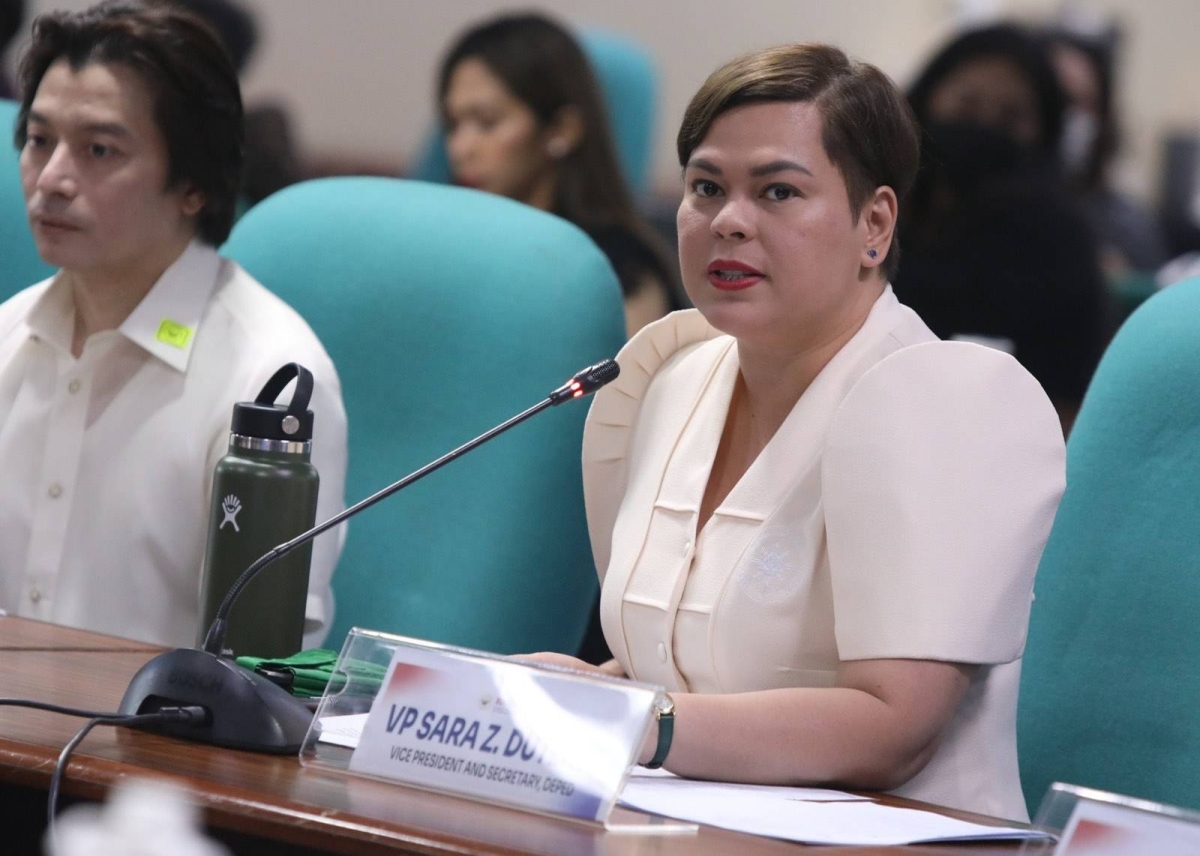
Vice President and Education Secretary Sara Duterte on Thursday highlighted the thrust of the Marcos administration to provide quality, accessible, relevant, liberating and resilient education for Filipino learners in her opening statement during the meeting between the Second Congressional Commission on Education (Edcom 2) and DepEd (Department of Education).
Duterte also acknowledged the move of Edcom 2 commissioners to push for transformative, complete and targeted reforms to address the learning crisis.
Edcom 2, which was established through Republic Act 11899, evaluates the performance of the education sector.
The vice president had earlier acknowledged that most senior high school graduates since 2016 struggled to find employment without a college or university education.
Only a little more than 10 percent of senior high school graduates landed a job, while 83 percent continued on to higher education, according to the National Senior High School tracer study included in the DepEd’s Basic Education Report (BER).
“The K to 12 curriculum promised to produce graduates that are employable. That promise remains a promise,” Duterte said.
She said the ongoing review of the K to 12 program has so far found a curriculum that was overstuffed with content and yet missing several prerequisites for essential learning competencies.
A number of these learning competencies also required “high cognitive demands” from students — a finding that previously appeared in the DepEd’s Basic Education Development Plan (BEDP) 2030, the agency’s first long-term plan to improve the quality of education.
Duterte said the assessment “revealed the weak teaching methods of our teachers in addressing 21st-century skills.”
The alignment meeting between Edcom 2 commissioners and DepEd officials was presided by Sen. Sherwin Gatchalian, Edcom co-chairman and chairman of the Senate basic education committee.
Gatchalian stressed the importance of employing a whole-of-government approach in addressing the challenges of providing quality education to Filipino learners.
He said the two agencies could take advantage of their respective expertise to come up with “concrete, targeted and transformative” policies for the country’s education sector.
During the meeting, Sen. Pilar Juliana “Pia” Cayetano suggested that “soft skills” lessons should be integrated into all levels of education in the Philippines after a reported survey of employers showed that many Filipino graduates lack soft skills.
“How do we do this? I am not proposing a new subject, but I am proposing that it is integrated every step of the way,” Cayetano said.
She said that among all Asian countries, CEOs find Filipino graduates “very hardworking and very reliable,” and that people skills such as communication, leadership, confidence, problem-solving, and the ability to collaborate would help them move up in their careers.
